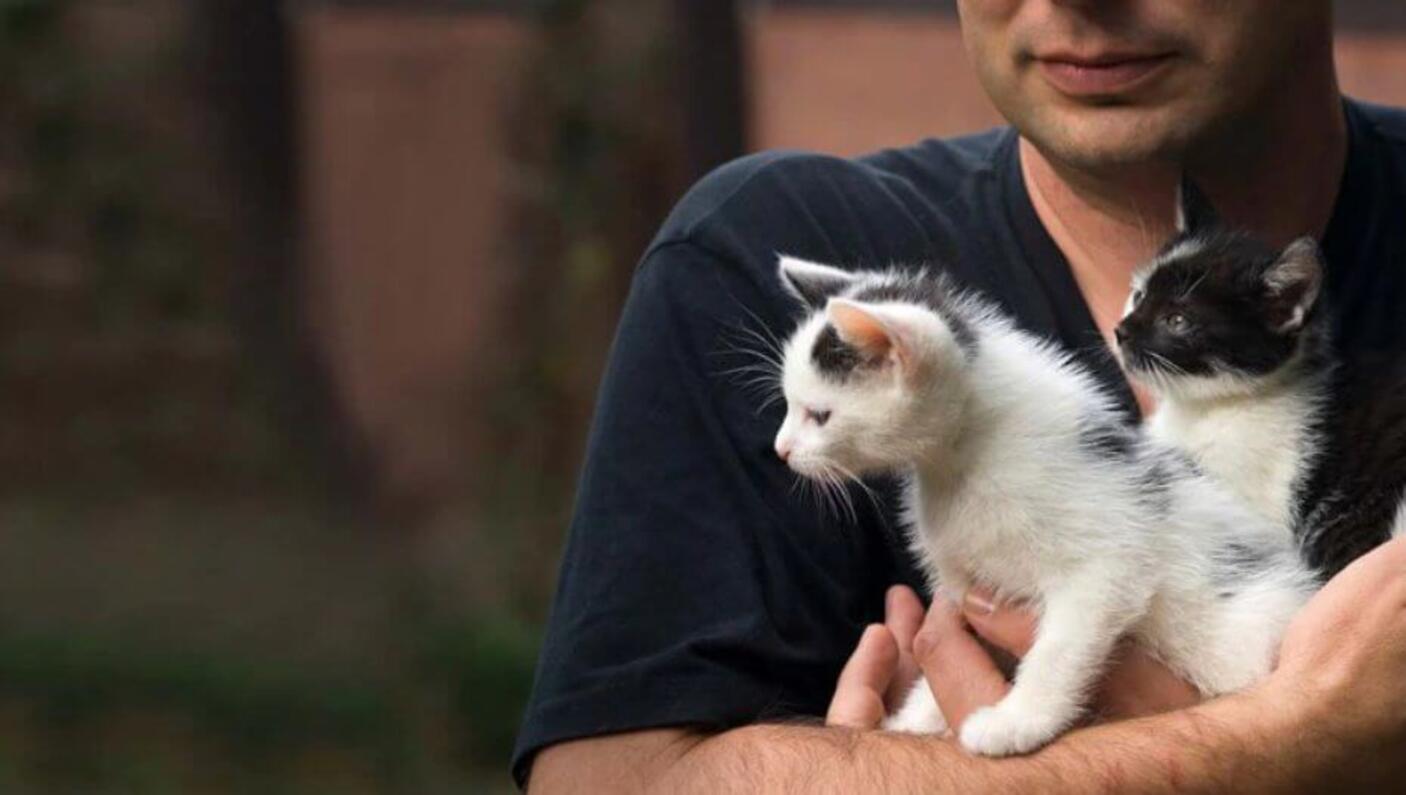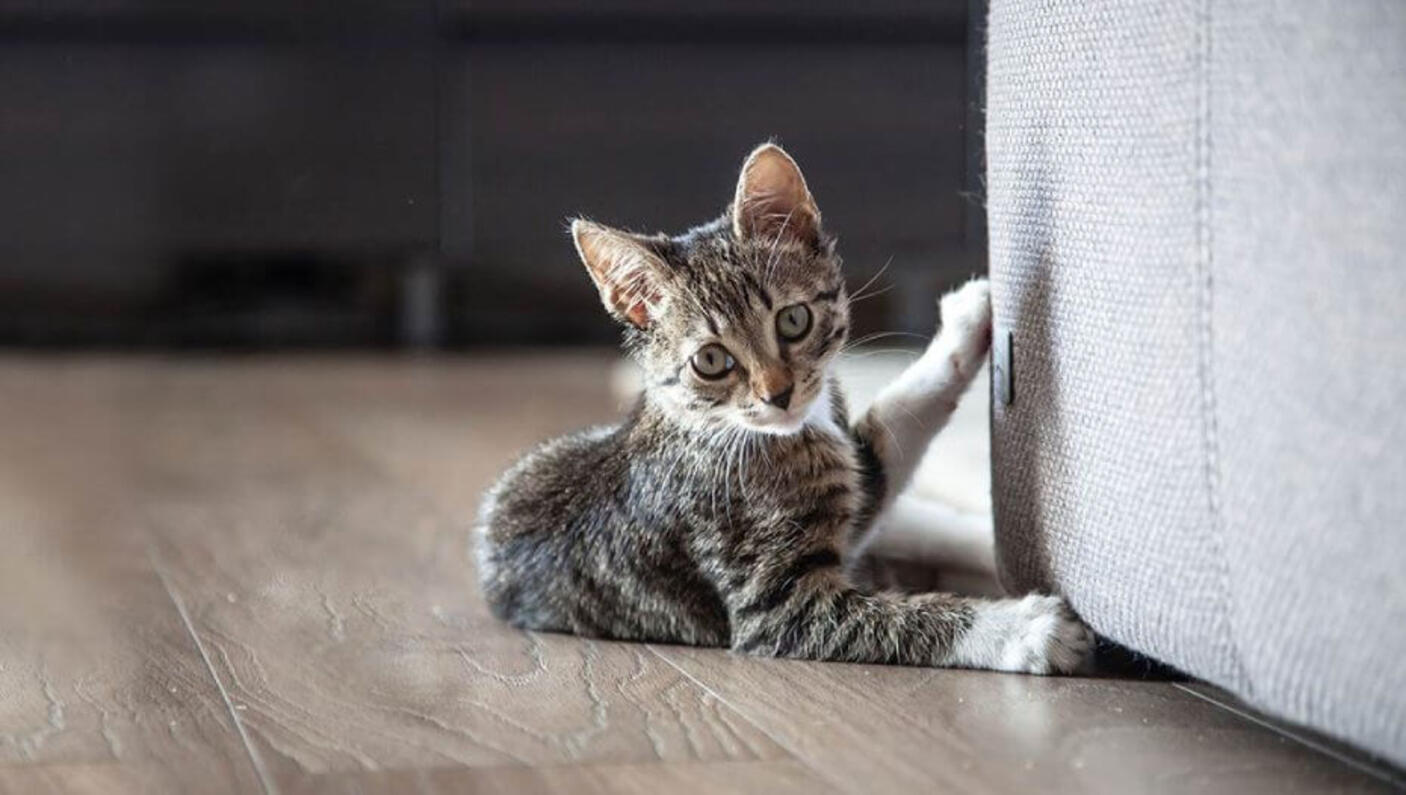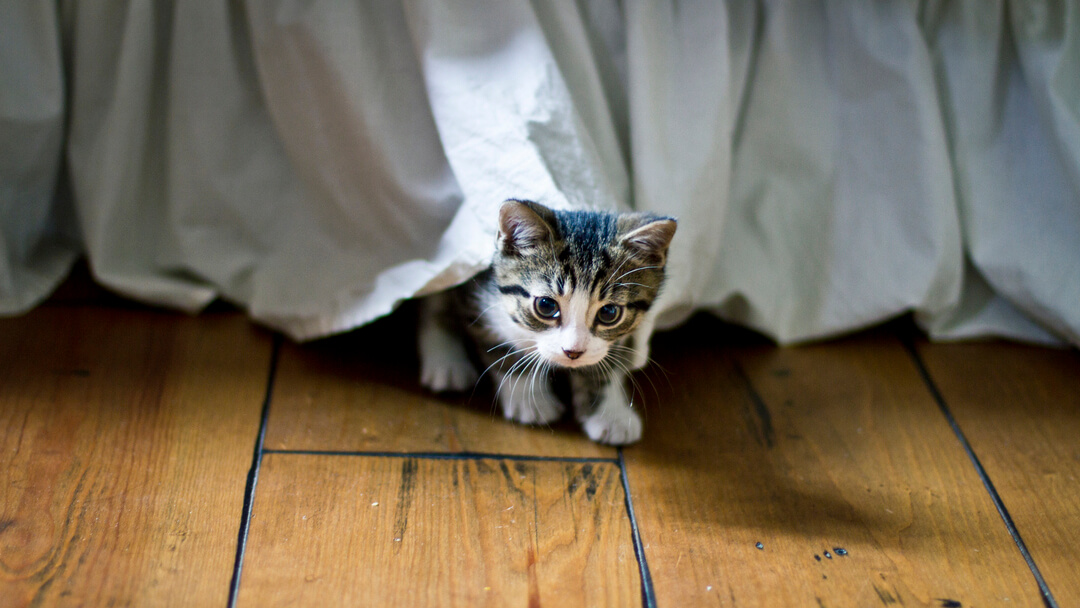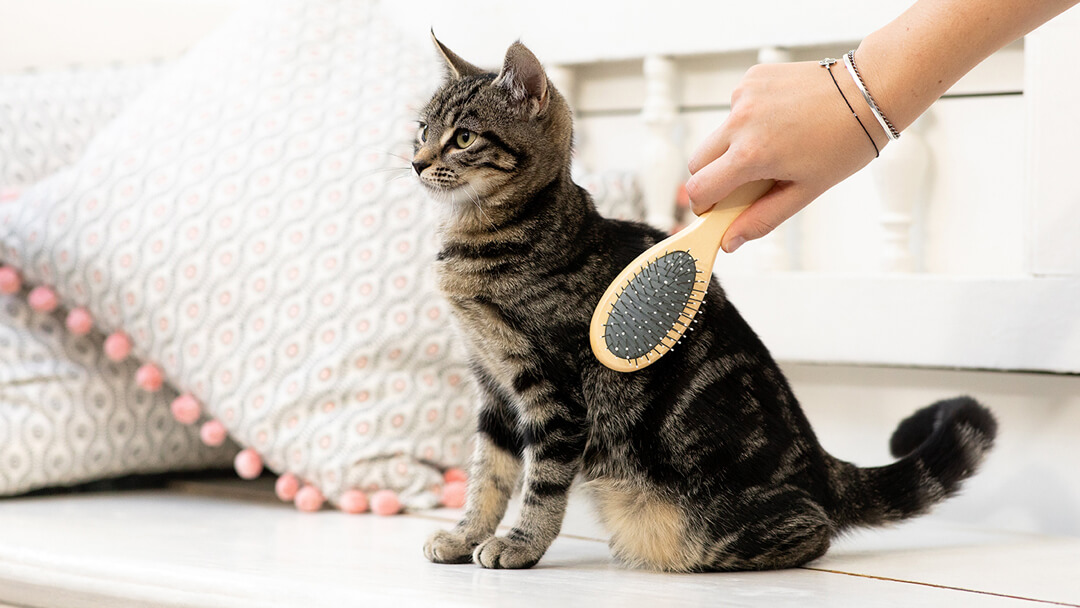

About Kittens
The arrival of a new kitten is a wonderful time, but we know it can be an anxious one too.
Keeping them safe and happy takes planning and patience for everyone in the household, but the effort will pay off, as your new pet grows into a confident, affectionate new family member who knows there’s no place like home.
Remember, the more love and care you give your kitten, the happier and healthier they’ll be!
Introducing Your Kitten To Family
A new kitten is a new family member. Here is the most effective way to introduce your kitten to the family without causing any sibling rivalry!
Your new cat and your family
When you bring kittens home, let them rest and get their bearings first. Once they’re ready, you can start introducing them to their new human family.
Get everyone to sit on the floor and only touch the kitten if approached. There should be no grabbing or arguing.
If kittens hide, tempt them out with a toy or a treat – encourage but don’t force them to be sociable.
If you have children, they will need to learn how to handle kittens properly.
- Teach them how to stroke the cat gently. Toddlers generally ‘pat’, which can hurt.
- Teach them where to stroke kittens – the top of the head and along the back.
- Although tummies are irresistible when a kitten is rolling and playing, most are rather sensitive about this area and may lash out.
- The litter tray is not a sandpit – so don’t let young children play in it!
- Your kitten should always be left alone when feeding, toileting, or sleeping.
- Tails should never be pulled.
- Hands should be washed after handling the kitten and the litter tray.
Introducing Your New Kitten To Other Cats
Most cats will eventually accept a newcomer, though it depends on the personalities involved. Let your kitten settle in for a couple of days before any introductions are made.
When introducing a cat to another cat – they will either learn to ignore each other or become best friends, curling up with each other for a nap and grooming each other regularly.
- Play it safe and use an indoor pen or carrier to protect your new arrival from any over-reaction from the surprised resident territory holder. Put the carrier on the floor of a chosen safe room.
- Invite the older cat into the room. Both cats will be able to assess each other through the bars of the crate without coming to any harm.
- Stroke your older cat to provide some reassurance and show there is no favouritism.
- Don’t worry if there is a spat with hissing and arched backs – this is natural.
- Once the introductions have started going smoothly, reverse the positions and bring the kitten to meet the older cat. Praise them both if they are civil to each other and give them each a treat.
- Hold the next meeting in another room. Keep moving around the house so the kitten’s scent spreads too.
- Repeat short introductions frequently until there is less of a reaction from either of the cats.
- Before you know it, they will be getting on with their own lives with only the odd scrap.

Canine companions
Even if a resident dog doesn’t get terribly excited at the sight of a new kitten, great care should still be taken when introducing a cat to a dog. Over-exuberant play can harm a kitten, so mutual respect needs to be encouraged.
- Place your kitten in a pet carrier, then put your dog on a lead and let him investigate the new arrival. If the dog shows any signs of getting over excited, remain calm. Try to distract your dog’s attention and give him a treat when he settles down.
- Repeat the process over several days, moving the carrier around the house until they are paying little attention to each other.
- When they’re both ready, you can remove the carrier. Choose a room that has an upward escape route (so your kitten can jump up and out of the dog’s reach.
- Make sure the doors are closed.
- Hold the dog on a lead before bringing in the kitten. It is important that the kitten doesn’t run away, as this will make things more exciting for the dog who may see it as a fun chase game.
- Keep the meetings short and sweet. Over several meetings, they will probably start to ignore each other.
- Once your pets are no longer bothered by each other’s presence, remove the lead. Always ensure the kitten can jump up to a safe spot out of the dog’s reach.
- Never leave the two unsupervised until you can trust them completely with each other.
Your new kitten and other pets
Don’t take any chances with other pets such as birds, rodents and other small creatures.
Cats have evolved to hunt and eat such creatures and they are unlikely to change their habits after millions of years. Use your common sense and keep your new kitten well away from their natural prey!

Kitten proof your home
It’s important to remember that your kitten will be naturally inquisitive and will set about exploring every corner of his or her new home. Learning how to cope with potential dangers is indeed part of ‘growing-up’, but that doesn’t mean you shouldn’t protect them from silly mistakes. A household is full of dangers to a curious mind, so it will help to go through your home and look at everything from your kitten’s perspective.
Some things to consider:
- Breakable ornaments should be put away in a cupboard.
- Doors to the oven, fridge, microwave, dishwasher, tumble-dryer and washing machine should always be kept closed. Put notes on the doors to remind people to check inside before using them.
- The toilet lid should always be kept down. Kittens can not only drown if they fall in, but they can be poisoned by drinking water that may contain cleaning chemicals.
- If a cleaning chemical has been left in the bath, sink or on the kitchen or bathroom floor, your kitten should be kept out of the room.
- All doors and windows should be kept shut. Even if your cat will eventually be allowed outside, she needs time to settle and to get to know her home before she is given outdoor access.
Some things to consider continued..
- Lit candles are asking for trouble – extinguish all naked flames when puss is around, and put a guard around any fires.
- Aerosols should never be sprayed near your kitten’s food and water bowls.
- Plastic bags must be kept safely out of reach.
- Many cats are attracted to firelighters, which are toxic, so keep them in a secure cupboard out of harm’s way.
- Food scraps must always be cleared away promptly. Chicken bones can be very dangerous, as they splinter when chewed and the string that can be found on joints is also irresistible and potentially deadly.
- Place all houseplants out of the way, and get rid of any plants that are toxic to cats.
- Hide all trailing electrical cables securely under carpets, or tape them to the floor or wall. A thick, cable protector (available from hardware stores) can also be placed over the cables, to make them chew-proof.
Remove or shorten hanging tablecloths – many kittens are experts at clearing a fully-laid table!













